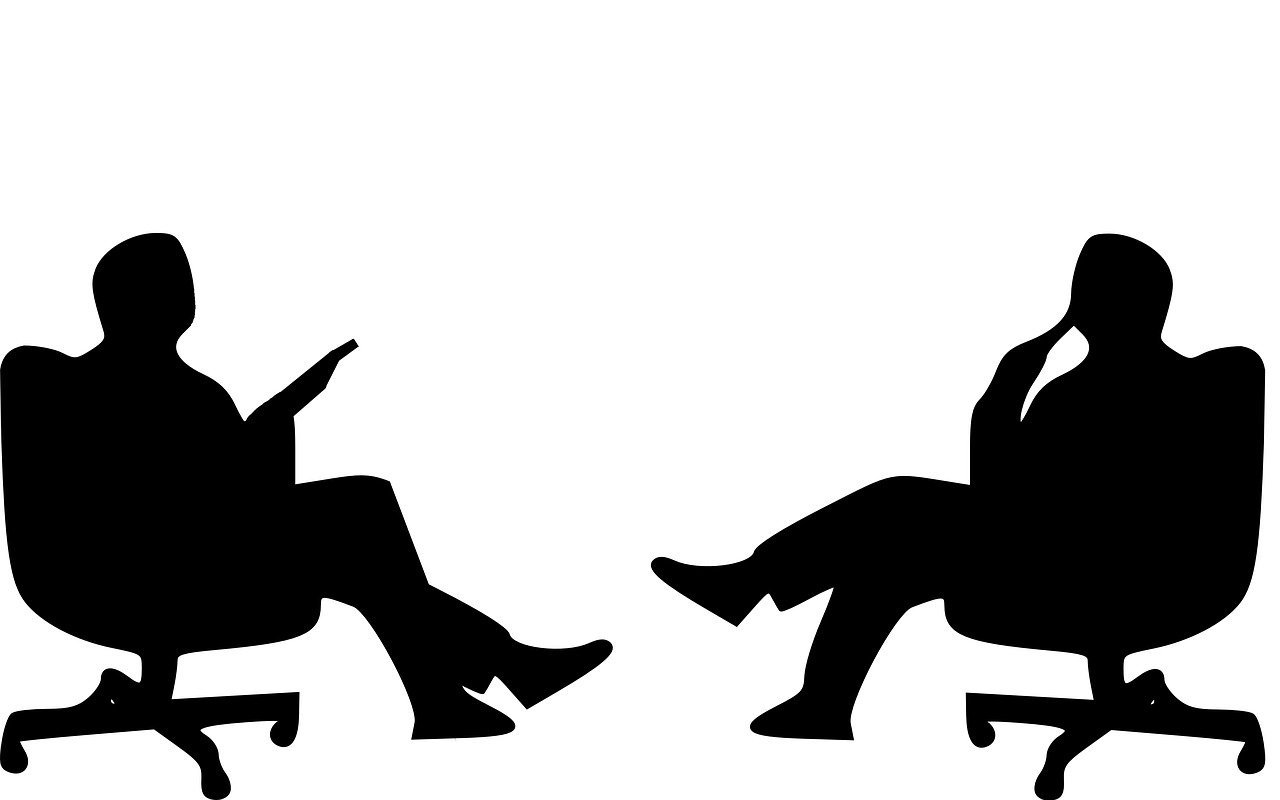Tauya Chinama talks to Scott Jacobsen about the challenges faced by humanists and freethinkers in Zimbabwe and surrounding countries.
Tauya Chinama is a Zimbabwean-born philosopher, Humanist, apatheist, academic researcher and educator. He is also into human rights struggles and active citizenship as the founding leader of a Social Democrats Association (SODA), a youth civic movement which lobbies and advocates for the inclusion and recognition of young people into decision-making processes and boards throughout the country anchored on Sustainable Development Goal 16 (Peace, Justice, Strong Institutions). He is also the acting president of Humanists Zimbabwe.
Chinama discusses the challenges faced by humanists and freethinkers in Zimbabwe and surrounding countries, focusing on religious overreach and the lack of religious tolerance. Chinama highlights that Zimbabwe’s population, predominantly Christian, often views other religions negatively due to media portrayal. Humanists aim to promote religious pluralism and advocate for religious freedom while recognizing the importance of education and awareness. Chinama discusses the progress of organizations like Atheists in Kenya and the registration challenges Zimbabwean humanist groups face. He emphasizes the importance of dialogue, mutual respect, and collaboration in advancing humanism.
Scott Douglas Jacobsen: Today, we will focus on national and regional issues, particularly in Zimbabwe, and some of the common challenges faced by humanists and freethinkers in the region. Specifically, we’ll discuss countries like Zimbabwe, Zambia, and South Africa and examine Zimbabwe’s national problems concerning religious overreach. Additionally, we’ll explore how Zimbabwe can collaborate with humanists in neighbouring countries to establish a broader base for advocacy and action.
Tauya Chinama: The primary issue in Zimbabwe is a need to understand better what it means to be tolerant and respectful to religious liberties and freedoms. Many people in Zimbabwe believe that the majority religion (Christianity) is the ‘true’ one. For example, about 85% of the population in Zimbabwe identifies as Christian. As a result, when people encounter other religions, such as Islam or Judaism, they often regard them as false. This perception might stem from how these religions are portrayed in the media.
For example, when you mention Islam to an average Zimbabwean, they often associate it with terrorism and violence, likely because media outlets like Al Jazeera, BBC, and others frequently report stories about suicide bombings and conflict without showing the positive aspects of the religion. Similarly, some pastors, especially in Zimbabwe, still blame Jews for the crucifixion of Jesus in their preachings, which negatively influences the views of many Christians.
Although Hinduism is practiced by a smaller population in Zimbabwe, mainly among the Indian community, especially in places like the Belvedere suburb of Harare, it is often misunderstood. Many Zimbabweans accuse Hindus of idolatry without a clear understanding of their religious practices. The core issue here is a lack of education and awareness.
Humanists and freethinkers are responsible for raising awareness about the diversity of religious worldviews and the importance of religious pluralism. As humanists in Zimbabwe we aim to be objective about different religions, worldviews, cultures and philosophies by being willing to present both the positive and negative aspects of each. However, in Zimbabwe, it is often only acceptable to highlight the positive sides of Christianity. At the same time, any criticism of the religion is seen as blasphemous, and those who do so are often ostracized.
Our political leaders tend to reinforce this problem by aligning themselves with the majority religion for political popularity. This creates a challenge when trying to foster respect for human rights and religious freedoms because populist politicians prefer to cater to the majority rather than protect the rights of minority groups.
Humanists aim to take an objective approach to examining religion, advocating for religious freedom and liberty without promoting one religion over another. This issue is rooted in the colonial era when one religion was often favoured.
Jacobsen: Nevertheless, registered groups, like the Atheist Society of Nigeria and Atheists in Kenya, have achieved official recognition by their governments, offering a model for how Zimbabwe could also create space for non-religious or minority religious groups to gain recognition.
So, there could be practices for registering organizations that other African activists, humanists, skeptics, and similar groups could consider to legitimize their work. They could even use that status to apply for grants. Could we share expertise on these processes, particularly how to gain governmental approval and respectability to benefit various African humanist and freethinker groups?
Chinama: Yes. In Zimbabwe, religious organizations and churches are usually registered, and any civil society organization must be registered. However, the Zimbabwean government is currently working on a bill, the PVO (Private Voluntary Organizations) bill, regarding how to register these organizations. The bill has taken a long time to pass into law, but it might be enacted soon.
Previously, organizations in Zimbabwe could exist in three forms: as a PVO, trust, or Universitas Personarum. PVOs and trusts must be registered through the Ministry of Social Welfare Services. The Universitas Personarum does not necessarily need to be registered. It is formed when people come together and agree on a particular cause, and it is recognized by law. This is the easiest method, and I have personally used this approach.
That is how the organization I co-founded in 2020, SODA, operates. It’s called Universitas Personarum, and it allows us to engage with government institutions and other entities because we are recognized by law. However, the government is attempting to remove the trust status. They claim that civil society organizations meddle too much in politics and want to regulate such activities. They are trying to make organizations clarify their objectives, especially when they are accused of being anti-government.
The government is also trying to cut off external funding, arguing that it influences organizations to serve the interests of the countries providing the funds. Despite these challenges, the Humanists Zimbabwe continues to operate as an organization for non-religious people and has been recognized by Humanists International. We have been pushing to advance our work, and we are one of the influential organizations in the southern region of Africa. However, other organizations are more advanced than us though.
For example, Atheists in Kenya Society (AIK) is one such organization. The last time I heard about them, the president of Kenya invited them to a national prayer breakfast. Although it sounds amusing that non-religious people are invited to a prayer breakfast, it shows their progress in being recognized and called upon for national events. It may sound funny, but being invited to prayer breakfast for non-religious people is a significant achievement.
We need to reach a point where we are invited to such events. The last time I met with the cultural counsellor of the embassy of Iran in Zimbabwe, I asked him how he felt about the fact that at national events here in Zimbabwe—whether it’s Independence Day, Heroes Day, or other state events—they normally open with Christian prayers. They don’t seem to care if there are Muslims, Jews, or non-religious people present. I asked him how he felt as a diplomat when a Christian prayer was forced upon him and his religion was not recognized.
He said that it worries them, but diplomats are not there as advocates when they are in other countries. They ought not to be actively participating advocacy divorced from their country’s business, so they go with the flow. I realized that people are often forced to accept what the majority does, even if they disagree. We should care about the rights and freedoms of the minority. Suppose the practice of the majority’s rights infringes on the rights of the minority. In that case, we need to sit down and figure out how best to recognize and accommodate the minority. Otherwise, we may be causing unnecessary suffering.
Jacobsen: And which regions, countries, or organizations seem to have more well-developed communities for freethinkers? What lessons can be gained from them?
Chinama: The country that is a little ahead in our region is South Africa. In South Africa, even in their education system, they respect religious diversity. That’s why they’re called the ‘Rainbow Nation’. If there’s to be a prayer, everyone can say what they want—Hindus, Muslims, and others. Another challenge we face as a region is the difference in our command languages.
For example, in Mozambique and Angola, they use Portuguese, while in Tanzania, they use Kiswahili. However, they are transitioning more towards English. These language barriers make it difficult for a region to collaborate effectively. So, we need to find a common language to make collaboration easier. But, at the moment, South Africa is above everyone else regarding respect for religious liberties.
Jacobsen: I’ve heard that marriage officiants are given certification in South Africa. Are there any other African countries doing this?
Chinama: Yes, in marriage officiants are state certified on the side of the Humanists there are several humanists marriage celebrants in Uganda, and here in Zimbabwe, we have one as well. Unfortunately, he’s still trying to find people who want to utilize his services. The Secretary General of Humanists Zimbabwe, Mxolisi Blessed Masuku, is a marriage celebrant. The last time I met him, I tried to convince him to consider becoming a Humanist chaplain, but he was hesitant. He said he would consider it.
I was also talking to the secretary of the faculty of Theology, ethics, religious studies and Philosophy at the Catholic University of Zimbabwe. I asked if they would accept humanists in their certificate program for training chaplains, and they told me that it was fine and that I could just come. They are willing to assist everyone. So, next year, I will need to fundraise and do the certificate in chaplaincy. I hope to inspire others to follow.
If I become a chaplain, I would move around local universities, train humanist chaplains, and try to expand these services into our defence forces, whether the police, correctional services or the army. We don’t have humanist chaplains in our educational institutions or security forces, but we need these services. We can’t criticize religious groups for their shortcomings without offering alternative solutions. It’s time we prove that what religions can offer, humanists can offer even better.
I plan to become a chaplain. It won’t be too difficult for me, as I once trained to be a priest, so I understand this role well. Recently, I saw Dr. Leo Igwe from Nigeria become a chaplain, and I’m sure he is making progress. If we have more humanist chaplains, it will help greatly. I can inspire others to join me, and we could create a tailored program for African humanist chaplains.
The American Humanist Association also trains humanist chaplains. I contacted them, and they said they used to train chaplains, though it’s been a while. The person I spoke with promised to raise the issue at their next meeting and see how they can help. I remember looking at young humanist leaders nominees of 2022, and I came across a lady who was a humanist chaplain in the Canadian military. I don’t recall her name, but a few humanist chaplains are in Canada.
Jacobsen: Yes, Marie Claire Khadij in the Canadian Armed Forces became the first humanist chaplain in the military in 2022. There’s also Marty Shoemaker in British Columbia. There are at least two others. There are only four registered humanist chaplains in Canada, but they are making a difference.
Chinama: Yes, I recall she was the first humanist chaplain in the Canadian army. I’ll have to check the name again. It’s mentioned on the Young Humanists International website page. They usually nominate young people working on humanism and other related fields. I was also a nominee in 2023 for that program, we can certainly do something similar here in Africa.
Jacobsen: What would be the first and easiest step for building bridges among African humanists? I’m calling from Canada to do these interviews and get some exposure. But I’m also sensitive to the fact that activists in any particular country are working on their projects. They want to ensure things are done more on their terms than not, even though they’re grateful for our exposure and help.
Chinama: Yes, platforms like this are helpful. We could organize online webinars where people from different countries in the region can speak out, share experiences, and manage to recognize the similarities and difficulties we face, as well as celebrate our successes. In addition to virtual webinars, in-person meetings at the regional level might also be necessary.
For instance, we can meet in Zambia, then next time in Zimbabwe, Botswana, Mozambique, or South Africa. Eventually, we could do this at a continental level. Southern, Eastern, Western, and Northern African representatives could meet in a particular country. I know this can be taxing, especially coming from third-world countries where we have various jobs that occupy most of our time. We may have little money to spare for humanist activities, so we must make sacrifices and look for resources wherever possible.
One of the biggest challenges for humanism in the southern hemisphere is that many of our economies are still developing, so there are significant struggles.
We also need to work on sustainability. Someone could buy land and start farming to fund humanist activities, or we could build a school. All these projects require funding, but we should brainstorm ideas for the region. For now, we can start with virtual webinars.
You mentioned a group talk last time, and some of the topics we could discuss at a regional level would include how to build a humanist movement, sustainability, and self-reliance. There are also practical activities, such as advocacy for alleged witches, psychosocial support from humanist organizations, and platforms like ‘Talk to a Humanist.’
We have the Young Humanists group and the Humanists Zimbabwe in Zimbabwe. Many exciting things are happening in Zimbabwe that are contributing to the development of humanism. When it comes to government, there are elements in the curriculum that don’t explicitly carry the label’ secular Humanist,’ but they imply it nonetheless.
Jacobsen: Evolutionary theory is fundamental to a naturalistic understanding of the world and how reality operates in biology, especially regarding the evolution and origin of the human species. How is evolutionary theory taught in Zimbabwean schools? What other topics need advocacy at the federal level in Zimbabwe to support a better, more secular, humanistic educational system for all?
Chinama: The challenge in Zimbabwe is that while the current curriculum is good, we have a heritage-based curriculum intended to run from 2024 until 2030. The curriculum itself is solid, but the problem lies with its implementation. Many teachers need to be well-trained in teaching certain topics. Evolutionary theory, for example, needs to be taught more effectively. Some people here confuse evolutionary biology with historical social darwinism and tend to make fun of it.
For instance, people often joke, saying that we came from baboons, which is not what evolutionary theory claims. I normally explain that we didn’t come from baboons; humans, bonobos, orangutans, and chimpanzees share a common ancestor. We are cousins, not descendants of these primates. However, the misunderstanding is widespread; even biology teachers sometimes need help to grasp and teach these concepts correctly.
We need a more humanistic approach to teaching, especially regarding topics like evolution. The primary and secondary curriculum is good, but we must improve our teachers’ training. To influence this kind of change, we would need financial resources, strong advocacy efforts, and access to media outlets to spread awareness and understanding.
Jacobsen: What have you found the biggest lesson in your activism in Zimbabwe? Every leader whom I consider you, with whom I have interacted, has gone through moments of significant self-doubt and challenge. What moments triggered that for you, and what lessons did you gain from it?
Chinama: The greatest lesson I’ve gained is that, as a person and leader, when you want to push for what you think is best, the number one thing is dialogue. But how do you engage in dialogue? You can only have a meaningful dialogue with someone once you learn their language and put yourself in their shoes. So, the first thing is understanding why people do what they do.
By putting myself in their shoes, I can then engage in dialogue with them, giving them time to talk while giving myself time to listen. This approach works wonders, even though it may only work on a small scale. When you meet someone and allow them to express themselves, and then you express yourself, it builds mutual respect. When you show someone you can listen to them, they are likelier to listen to you.
I’ve realized that human beings can listen, dialogue, and sit down and discuss issues. Yes, I’ve seen people try to be confrontational, but I’ve also learned that confrontation often makes people defensive. I’ve learned this over time, which I aim to perfect. It’s made me want to research more about people’s backgrounds to understand how they’ve come to be who they are and how the systems they follow have shaped them.
Religious people have told me I would make a good pastor several times. When you reach that point—when a religious person sees a humanist as someone who could be a good pastor—you’ve already made an impact. You’ve given that person something to think about. They may go away, reflect on what you’ve discussed, and come back to you a year later.
Jacobsen: Thank you for your time today for that session.








Article Discussion